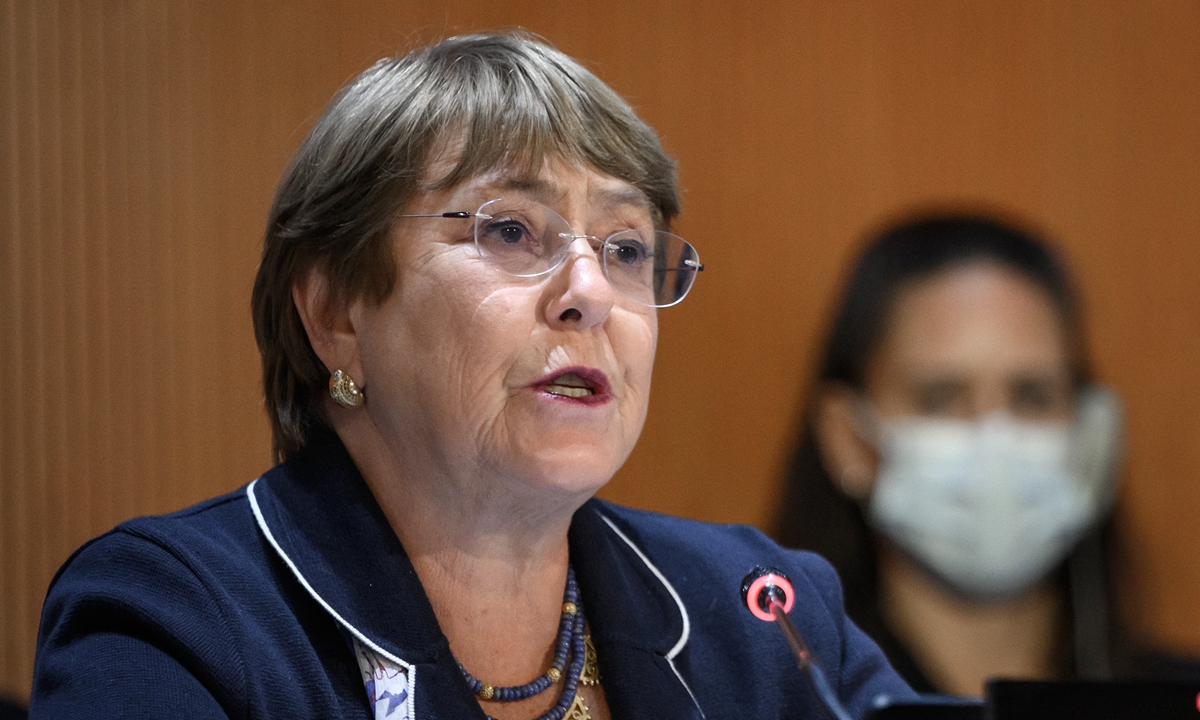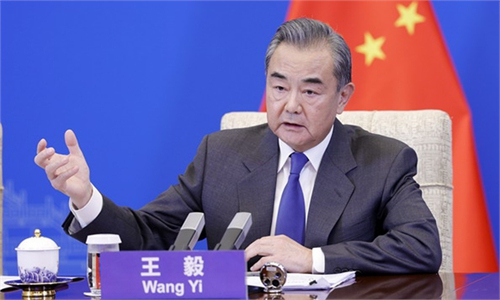
UN High Commissioner for Human Rights Michelle Bachelet. Photo: AFP
It can be anticipated that the US and some of its Western allies would not stop fabricating rumors and smears toward northwest China's Xinjiang Uygur Autonomous Region as China welcomes United Nations High Commissioner for Human Rights Michelle Bachelet.Bachelet said on Tuesday that she will visit China, including a trip to Xinjiang, after reaching an agreement with Beijing.
China's policy on Xinjiang has constantly been open and aboveboard. And China has always welcomed the international community to visit Xinjiang without any prejudice. Since the end of 2018, more than 1,200 people from over 100 countries and regions, including officials from international organizations, diplomats, journalists and religious leaders, have visited Xinjiang. Bachelet is not the first, and will definitely not be the last senior politician from overseas to visit this region.
China's permanent representative to the UN Office in Geneva Chen Xu said on Tuesday that China expects Bachelet and her office to "respect the sovereignty of all countries as well as the rights and development path independently chosen by countries in light of their national conditions." On Xinjiang-related issues, China clearly takes the moral high ground. It is also looking forward to dialogue, cooperation, and other constructive measures.
But Western politicians have continued to pile pressure on China over the Xinjiang issue. For example, US Secretary of State Antony Blinken said when addressing at the 49th session of the UN Human Rights Council on March 1, "In China, the government continues to commit genocide and crimes against humanity in Xinjiang against predominantly Muslim Uygurs and other minority groups." It is a typical lie for the US to groundlessly distort China's efforts to secure public order for the region and improve livelihood for ethnic minorities as a kind of human rights abuse.
Xinjiang-related issues are China's internal affairs. Some Western countries are accustomed to exploiting human rights as a political instrument to crack down on China. In the past five years, Xinjiang has been free from violent terrorist incidents. And the greatest extent of basic human rights of people of all ethnic groups in Xinjiang have also been guaranteed. The practice of smearing China over the Xinjiang issue by the US and some Western countries is doomed to fail. This can only deceive those who have never been to China.
"Washington's smear over Xinjiang is political warfare. As the US has labeled China as its main rival, it intends to play the Xinjiang issue as a card to contain and suppress China. This has been Washington's old and consistent trick." Lü Xiang, a research fellow at the Chinese Academy of Social Sciences, told the Global Times.
Even if there are no Xinjiang-related issues, the US and some Western countries will fabricate other rumors to constantly smear China. In essence, these countries use human rights as a pretext to interfere in other countries' internal affairs out of geopolitical purposes. They are seeking hegemony in the name of human rights.
"China needs to firmly adhere to its Xinjiang policy. Whatever the US and some Western countries say cannot prevent China from developing. Furthermore, China should wage a counteroffensive to sharply condemn and refute their groundless criticism, and insist on remaining open toward upright people from the international community, in a bid to gain understanding from the majority of countries and people," Xu Liang, associate professor at the School of International Relations, Beijing International Studies University, told the Global Times.

